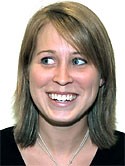T.S. Eliot said that April is the cruelest month, but I think it’s March. Of course, March Madness and spring break are fun, but what I hate about March is that that’s when it really sets in that I haven’t kept any of my overly ambitious New Year’s resolutions. March is a month for taking stock, and for me, it usually entails seeing where I don’t measure up.
The World Bank has been stuck in March lately. It’s facing up to allegations of corruption that have long sullied the name of the good work it’s tried to do internationally. In short, the organization’s had to acknowledge that it represents everything that’s wrong with large-scale development initiatives – and everything that could be right.
The World Bank has the capacity to do incredible good or wreak enormous havoc, and since its creation at the end of World War II, it’s done both. Its work in Indonesia is a good example of the problems it has fomented, despite admittedly good intentions. It funded a disastrous forced relocation program there, moving peasant farmers from overcrowded Java to outlying islands, destroying indigenous cultures and causing massive environmental damage. The bank continued pouring money into the program despite international criticism and the very obvious destruction it was causing in Indonesia.
The relocation program illustrates a problem that many have decried over the past years: Because the Bank is so large and well established, it’s often been sluggish to respond to criticism.
Over the past decades, much of the criticism levied against the bank had to do with corruption. Northwestern University professor Jeffery Winters testified before Congress in 2004 that the bank had lost $100 billion to corruption over the years. Obviously, this is in part a result of the fact that the bank conducts the bulk of its operations in countries where bribery is a normal – and, unfortunately, sometimes unavoidable – part of doing business.
Allegations have also been made that in some instances, government officials in the poorest of countries were living on salaries that were so paltry that they were stealing simply to feed their families. It’s hard to be convinced, however, that this Jean Valjean scenario could really account for a very large portion of the losses. The numbers are big enough to suggest that a much larger and more pervasive corruption persists, affecting the work of the entire organization.
The bank’s previous president, James Wolfensohn, undertook a campaign to eradicate the “”cancer of corruption.”” He was the first major public figure in the organization to admit both the pervasiveness of the problem and the necessity of finding a solution for it.
Paul Wolfowitz, the former No. 2 man in the Department of Defense, was named the World Bank’s new president last year by President Bush. Though some criticized Bush’s selection of an individual who had been so closely tied to the war effort in Iraq, few can deny that Wolfowitz is doing all he can to stomp out corruption in the World Bank. He’s taken Wolfensohn’s mission to clean up operations and made it his own, with gusto.
Under Wolfowitz’s headship, the investigations department has been able to make a great deal of headway on a backlog of over 400 investigations into allegations of corruption that had accumulated over the years. He’s also been putting particular focus on the dispersal of World Bank funds in sub-Saharan Africa, a region where it’s hard to miss the harmful impact of corruption.
Although there has been disagreement over his methodology, at least the issue of corruption is being acknowledged and discussed in public. For many years, corruption was a silenced, dirty secret of the bank, and certainly not a topic bandied about in the marbled halls of the organization’s headquarters in Washington, D.C.
Some have argued that the World Bank’s mission is to help underdeveloped nations reach the financial solvency that development initiatives require, not to become some sort of an anti-corruption police force. While it’s important that the bank doesn’t lose sight of its initial goals, it’s hard to argue that any misallocation of vital funds isn’t directly detrimental to, say, the developing nations where 33,000 children die daily.
The great hope for the World Bank doesn’t lie in the specific actions it’s taking right now. It lies its willingness to take stock of its errors and learn from them to develop better practices and polices for the future – a skill set we’ve got to demand not only of ourselves, but of the institutions shaping our world.
Lori Foley is a senior majoring in international studies and English. She can be reached at letters@wildcat.arizona.edu.









